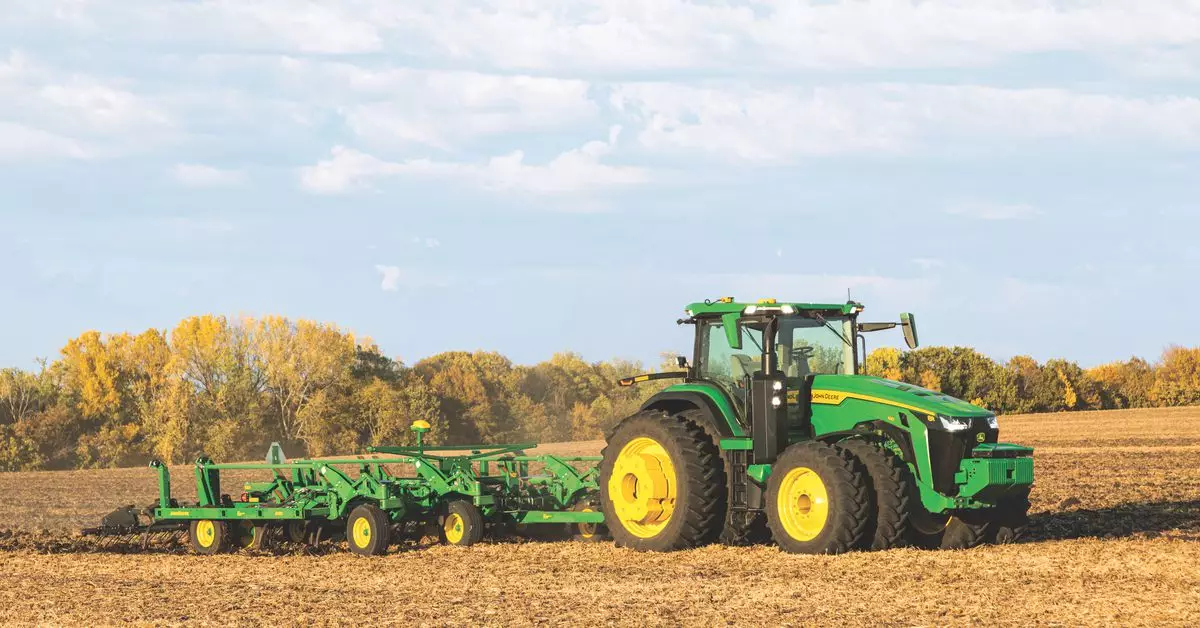The recent solar storms that have been mesmerizing people with the Northern Lights across the United States have also been causing disruptions for GPS satellites, leading to significant challenges for Midwest farmers. According to reports, the solar storms have temporarily knocked some GPS systems offline, affecting the accuracy of Real-Time Kinematic (RTK) systems that are essential for farming operations. This disruption has caused drastic shifts in the field and heading changes for farmers who continued planting during the outages. This is particularly concerning as a crucial planting deadline for corn farmers approaches, making it crucial for them to get their crops planted in a timely manner.
Modern farming practices heavily rely on high-tech, automated tractors and equipment for various operations like crop planting and fertilizing. The use of RTK systems, such as those utilized by tractors from John Deere and other brands for centimeter-level positional accuracy, highlights the technological dependence in today’s agriculture sector. However, the recent disruptions in GPS systems due to solar storms have exposed the vulnerability of these high-tech systems, putting farmers at risk of inaccurate planting and potential crop destruction.
Challenges Faced by Farmers
Organic farmer Tom Schwarz shared his concerns about the impact of the solar storms on farming operations, emphasizing the importance of precision planting to avoid crop damage later on. The reliance on GPS systems for planting crops right up to the edge of lanes where tractors drive between them underscores the critical role of technology in modern agriculture. The inability to access accurate GPS data during planting can have lasting repercussions on crop yields and farm productivity, highlighting the challenges faced by farmers when essential technology fails.
The disruptions caused by the solar storms have sparked discussions around right-to-repair laws, as farmers seek greater autonomy in repairing and maintaining their high-tech agricultural equipment. The current reliance on manufacturers for repairs and maintenance leaves farmers vulnerable when technology malfunctions, jeopardizing the entire life cycle of their crops. Advocates like Willie Cade from Repair.org have emphasized the need for farmers to have the ability to fix their tractors independently, rather than being reliant on manufacturers for support.
Understanding Solar Storms and their Impact
Geomagnetic storms, such as the ones caused by solar flares and coronal mass ejections, can have severe consequences for Earth’s technology and infrastructure. The recent G5 storm that hit the Earth disrupted GPS systems and affected various technological systems, including satellite networks like Starlink. The severity of these storms underscores the importance of preparedness and resilience in the face of potential disruptions, especially for industries like agriculture that heavily rely on high-tech solutions for day-to-day operations.
The recent solar storms have highlighted the vulnerabilities of high-tech systems in modern agriculture, particularly impacting Midwest farmers relying on precise planting methods. The disruptions caused by the storms serve as a reminder of the importance of technological resilience and the need for farmers to have greater autonomy in managing and maintaining their equipment. As discussions around right-to-repair laws continue, it is essential for policymakers and industry stakeholders to address the challenges posed by technological dependencies in farming practices, ensuring the continued productivity and sustainability of the agricultural sector.


Leave a Reply